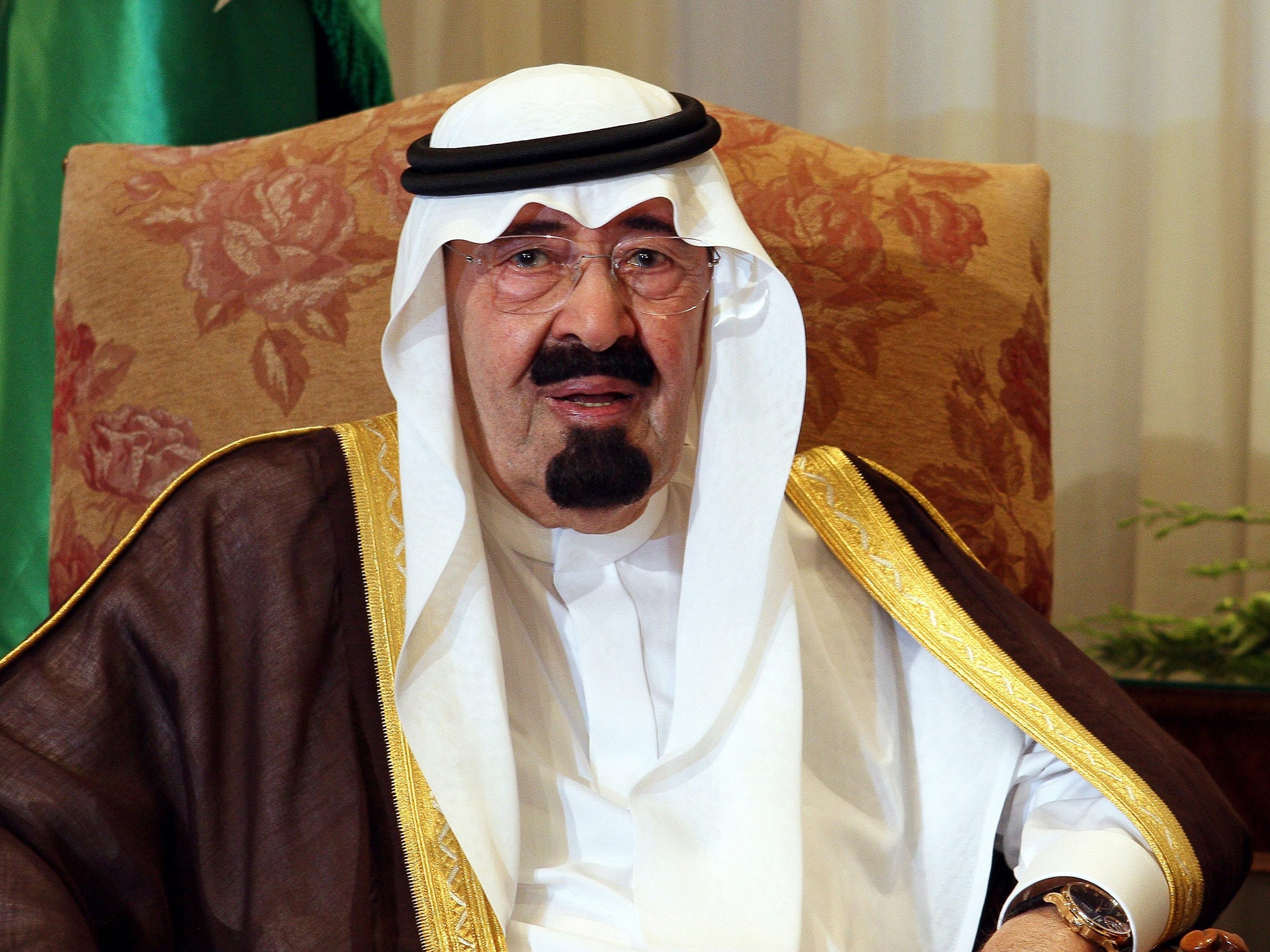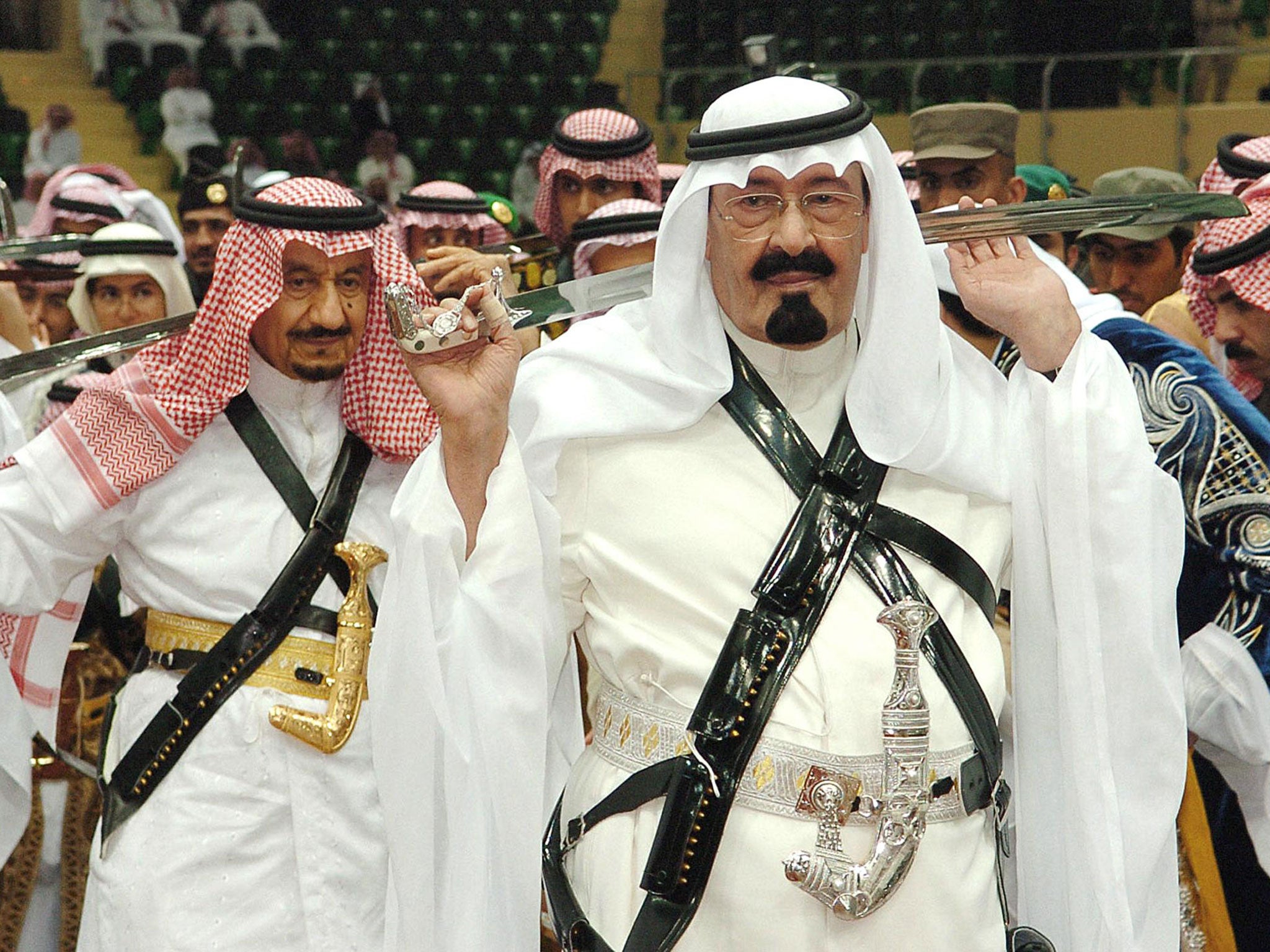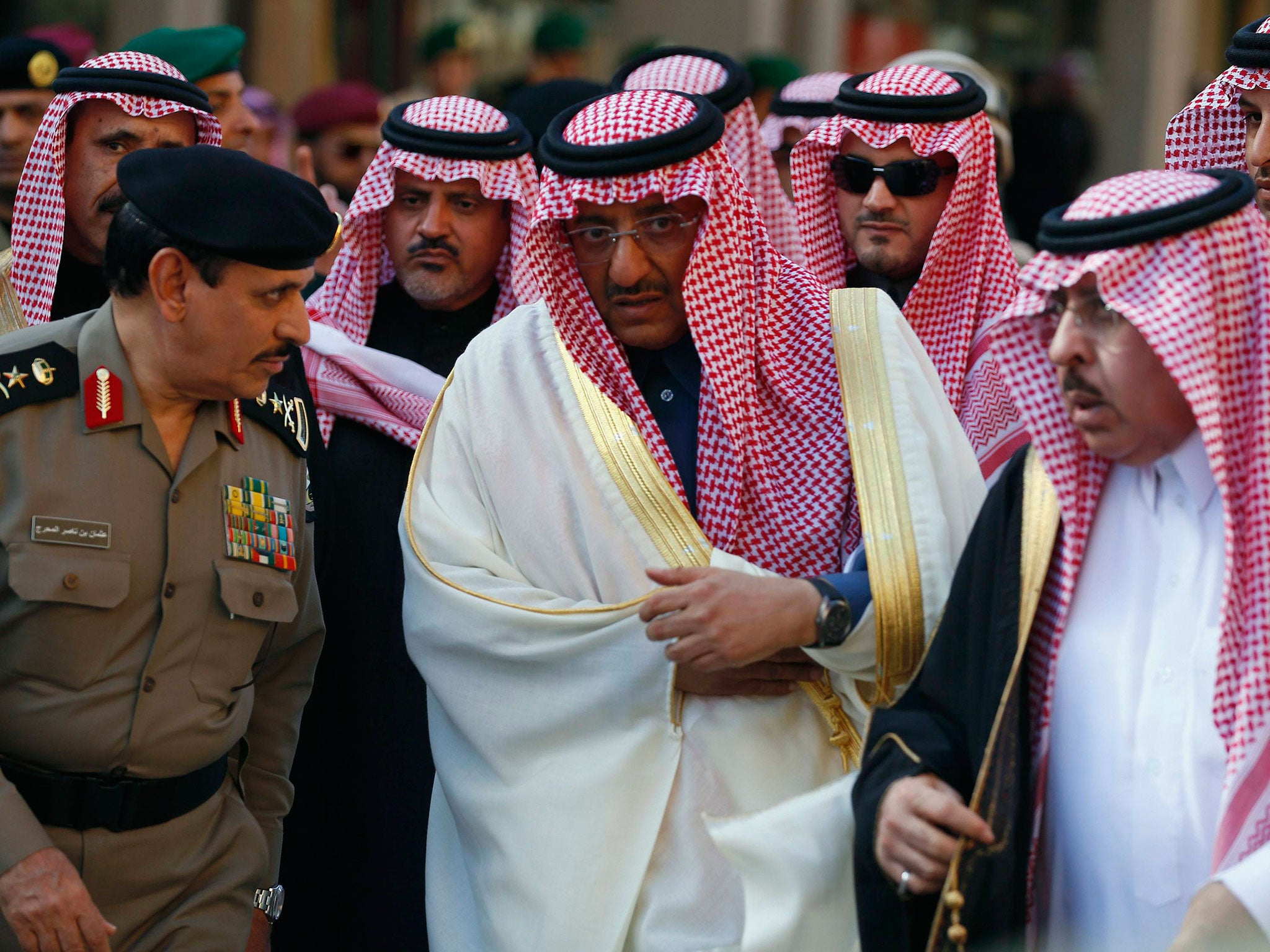King Abdullah of Saudi Arabia: The King who initiated mild reforms at home while tightening Saudi Arabia’s grip on the Middle East

Your support helps us to tell the story
From reproductive rights to climate change to Big Tech, The Independent is on the ground when the story is developing. Whether it's investigating the financials of Elon Musk's pro-Trump PAC or producing our latest documentary, 'The A Word', which shines a light on the American women fighting for reproductive rights, we know how important it is to parse out the facts from the messaging.
At such a critical moment in US history, we need reporters on the ground. Your donation allows us to keep sending journalists to speak to both sides of the story.
The Independent is trusted by Americans across the entire political spectrum. And unlike many other quality news outlets, we choose not to lock Americans out of our reporting and analysis with paywalls. We believe quality journalism should be available to everyone, paid for by those who can afford it.
Your support makes all the difference.Prince Abdullah came into his own at a time most men are well into retirement.
He was in his seventies when his half-brother, King Fahd, suffered a stroke in 1995 and retired from public life, leaving Abdullah to rule, though the King retained his title while Abdullah was officially still the Crown Prince, First Deputy Premier, and Commander of the National Guard. As it became clear that King Fahd would not be able to take an active part in the direction of the country, Abdullah increasingly put his own stamp on the Kingdom’s policies while dutifully invoking his half-brother’s name in all his speeches. When Fahd died in 2005, Abdullah became king.
Abdullah was slightly on his own in the convoluted politics of the Saudi royals, the 6,000-strong group which provides the Kingdom’s top echelons and has within it all the tensions of any other ruling hierarchy. He was the son of a woman virtually taken in battle and then married by his father, Abdul Aziz – the legendary ibn Saud – to cement a new alliance. He had no full brothers, and thus no inner circle which he would feel able to trust absolutely.
At the same time he had many advantages: he was, in many ways, the most like his father, the man who founded the Kingdom and kept it intact. And like his father, Abdullah was able to command the respect and affection of the people of the Saudi heartland, the Bedouin who adhered most closely to the austere Wahabi brand of Islam, and whose support was vital. A man with a fierce appearance, he was in fact a gentle character with a slight stammer and yet could speak forcefully. He was unostentatiously devout, sharing the uncompromising religion of the Bedouin among whom he spent his formative years: asked, in a period of dissent, about the lure of socialism, he replied: “Saudi Arabia has a constitution inspired by God and not drawn up by man. True socialism is the Arab socialism laid down in the Koran”.
Abdullah was untainted by scandal, unlike many others in the ruling group, and all his life spent as much time as he could with the people of the desert and villages. It was there that he received his real education after the teaching provided at his father’s court, which consisted of little more than the traditional reading of the Koran. It was something which left the young Prince with a love of books, and he founded libraries in Riyadh and in Casablanca.
Once he took over in 1995, Abdullah did much to stop the apparent drifting of Saudi policy which had been allowed to develop in the last years of Fahd’s active reign. In the aftermath of the Gulf war against Iraq, Saudi Arabia, for the first time since the pre-oil days, found itself without the sort of vast affluence which had until then allowed it to pursue policies of great extravagance, not only at home but throughout the Muslim world.
In this brief period of relative austerity, the voices of dissidence could at last be heard, though that was never a serious threat in a country with the sort of credit Saudi Arabia enjoyed. But when grumbles were added to the violence of Islamic fundamentalists it was enough to worry the Rulers, and their backers, the Americans.

It was the presence of the US military, and the Washington policy of backing Israel at almost all costs, which caused most dissent among the ordinary people, but Abdullah had no hesitation in accepting the alliance with the US, agreeing that American forces were still needed in the Kingdom, and accepting that sanctions against Saddam-era Iraq were justified. But he took every opportunity to point out to Washington the inequity of its Middle East policy with its blind support of Israel and its unwillingness to accept that the Palestinians and the Arabs had a case.
In the Arab world, Abdullah did much to restore the image of his country. Where there had been indecision for so long, he embarked on a series of visits to Arab and Islamic states to explain the Kingdom’s policies and to lend his influence to the many who were trying to get a change in American attitudes. He was also the architect of a rapprochement early in his reign between Saudi Arabia and Iran, which meant that his words were listened to even more closely in Washington.
At home he had no hesitation in curbing the allowances paid to the princes, and requiring those of them who ran companies to compete on equal terms with others rather than being automatically given government contracts. In a kingdom where ultra-conservative Muslim clerics have long held a lock on all aspects of society, his incremental reforms echoed mightily. He took the unprecedented step of opening a new university in which men and women could mix in classrooms, part of his gradual campaign to modernise Saudi Arabia. One sheikh dared to say that the mingling of genders at the university was “a great sin and a great evil.” Abdullah fired him from the state-run body which sets the rules for Saudi life.
But there were limits: he did not respond to demands to allow women to drive, though in 2011 he overturned a sentence of 10 lashes given to a woman who had defied the ban. When he died, two Saudi women would-be drivers had been under arrest for more than six weeks thanks to their comments on Twitter. He used a mixture of largesse and intimidation to quell rumblings for change, announcing a package of more than $90bn of incentives, jobs and services in 2011 while unleashing riot police to crush demonstrations.
Abroad, his methods translated into a powerful assertion of Saudi Arabia’s influence in the Middle East. Backed by the US, he became aggressive in trying to put up a bulwark against the spreading power of Shiite Iran. According to a leaked US diplomatic memo, in 2008 he urged Washington to consider military action to “cut off the head of the snake” because of Iran’s apparent nuclear advances. He pushed Gulf allies into taking increasingly vocal stands against Iran and sought to isolate Syria because of its alliance with Tehran.

In Syria, he supported and armed rebels struggling to overthrow President Assad and pressed the Obama administration to do the same. Iran’s allies, Hezbollah and Iraqi Shiite militias, rushed to back Assad, and the resulting conflict has been catastrophic.
Abdullah was an iron-willed defender of the status quo abroad, rushing to the aid of Egypt’s military-backed government when it overthrew the Islamist president, Mohamed Morsi. He sent troops to lead a Gulf force into Bahrain in 2011 to help the island nation’s monarchy crush Shiite-led protests for greater rights.
When there were policy differences with the US, Abdullah made them clear. He resisted Washington’s pressure to warm to Iraq’s US-backed Shiite prime minister, Nouri al-Maliki, seeing him as a tool of Iran. He was frustrated with America’s failure to advance the Israeli-Arab peace process.
The attacks of 11 September 2001 had strained relations between Saudi Arabia and the US – where many pointed out that the baseline ideology for al-Qaida and other groups was a radical offshoot of Saudi Arabia’s Wahhabi brand of Islam. But when al-Qaeda militants in 2003 began a campaign of attacks in the kingdom aimed at toppling the monarchy, Abdullah cracked down hard. For the next three years, the militants attacked foreign residential compounds, oil facilities and other targets, until security forces succeeded in forcing many of its members to flee to neighbouring Yemen.
Abdullah’s wealth was estimated at more than $21 billion. He made a number of humanitarian donations, including relief supplies after the Chinese earthquake in 2008 and donations to refurbish a New Orleans school damaged by Hurricane Katrina in 2005, as well as to Palestinians in the Gaza Strip. A few weeks before his death, Abdullah was admitted to hospital with a lung infection and reportedly died of pneumonia.
Abdullah ibn Abdul Aziz Al Saud, King of Saudi Arabia: born Riyadh c. 1924; married at least 11 times (at least 16 children); died Riyadh 22 January 2015.
John Bulloch died in 2010. This obituary has been updated
Join our commenting forum
Join thought-provoking conversations, follow other Independent readers and see their replies
Comments